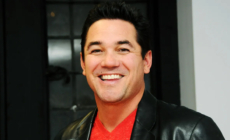-
Law firm in L.A. homeless case bills $1.8 million for two weeks’ work - 15 mins ago
-
Airbnb Host Checks In ‘Polite’ Woman, Not Prepared For 5AM Call They Get - 28 mins ago
-
Arch Manning No. 1 Pick in 2026 NFL Draft? ‘He’ll be at Texas,’ says Archie - 41 mins ago
-
Three-quarters of teens have tried AI companions, new study finds - 44 mins ago
-
Masked robber put L.A. family in boarded-up closet. He was no stranger - 54 mins ago
-
Tesla Diner Announces Major Menu Change After ‘Unprecedented Demand’ - about 1 hour ago
-
Ikarus Buses Will Return to Greece after 20 Years - about 1 hour ago
-
Test your news knowledge with the Fox News Digital News Quiz - about 1 hour ago
-
Dean Cain becomes ICE agent to support immigration enforcement efforts - about 1 hour ago
-
New York Giants OC Mike Kafka: QB Jaxson Dart is ‘Right on Schedule’ - about 1 hour ago
Insurer of last resort faces questions over smoke damage claims
Last week, the Department of Insurance ordered the state’s home insurer of last resort to answer allegations that it has handled smoke damage claims illegally, which has prompted policyholder complaints and multiple lawsuits.
But consumer advocates say the legal action is long overdue, and some are skeptical that the move will reform the controversial California FAIR Plan.
The July 31 filing threatens the plan, operated by the state’s licensed home insurers, with a cease-and-desist order and fines of up to $10,000 for each violation. The plan will be able to defend itself at an as-yet unscheduled hearing before a department administrative law judge.
“I’ve spoken with wildfire survivors who would rather lose their homes to flames than endure the stress and confusion of navigating smoke damage claims,” said Insurance Commissioner Ricardo Lara in a statement. “This is unacceptable.”
Hilary McLean, a spokesperson for the plan, said in a statement that the insurer “welcomes the opportunity to engage in this process” and has been working with the department over the past year to “update and clarify its policy language around smoke damage.”
The FAIR Plan’s handling of smoke damage claims has angered homeowners who say that instead of being promptly offered industrial hygienic testing for toxic substances and professional cleaning services — even after homes were infiltrated by soot, ash and other fire debris — they were told to try to clean up their properties and given lowball offers to close their claims.
However, advocates for policyholders have questioned why it took so long for the department to take the action after its own probe in 2022 found 418 violations of state law and the insurance code.
“That delay caused real harm. Eaton and Palisades fire survivors suffered needlessly under FAIR Plan smoke damage denials because Lara failed to act on the findings of his own investigation,” said Joy Chen, chief executive and co-founder of the Eaton Fire Survivors Network, a community group formed after the Jan. 7 fires.
Gabriel Sanchez, the Department of Insurance press secretary, said regulators worked methodically in bringing the case.
“Taking enforcement action is a legal process, not a political decision. We must build a strong evidentiary record to meet legal standards and ensure lasting accountability. That’s exactly what we’ve done,” Sanchez said.
Harvey Rosenfield, an attorney and founder of Los Angeles advocacy group Consumer Watchdog and a critic of Lara who has accused him of being too chummy with the insurance industry, said the commissioner could have sought an injunction in civil court to halt the alleged illegal claim denials years ago.
He cited the case of Mercury Insurance, which the department took administrative action against in 2004 over allegations it was having auto insurance customers pay illegal broker fees. Though Mercury ultimately paid a record $41-million penalty, the case was tied up in courts for 15 years after multiple appeals by the insurer.
“This process can become a shield for the insurer to use to protect themselves from accountability,” Rosenfield said. “It raises the question of Lara’s true intentions, though he could prove us all wrong.”
The order to show cause filed by the department accuses the FAIR Plan of denying smoke damage claims through its reliance on illegal policy language adopted in 2017 that requires the claims to show “permanent physical changes” to property.
A market conduct exam of a random sample of claims handled by the plan from Jan. 1, 2017, through March 16, 2021, found 418 violations of state law and the insurance code, including 118 stemming from the changed language.
The plan acknowledged some of the findings but disputed others, including that its policy language violated the law.
The department threatened to take administrative action over the matter but did not do so until last week.
Sanchez said the department has taken a number of escalating legal actions against the FAIR Plan, including holding a 2022 investigative hearing and issuing a May 2025 legal directive declaring the “permanent damage” policy language unlawful and unenforceable.
The claims denials by the FAIR Plan became an acute issue after the Jan. 7 fires due to their scale and the growth of the insurer’s market share as commercial carriers left the market, citing California’s increasing vulnerability to wildfires.
The plan covered less than a quarter-million California homeowners in 2021, but its enrollment reached nearly 452,000 three months before the fires.
The number of homes on the plan in the Palisades and Eaton fire zones rose nearly 50% last year to 28,440, according to a Times analysis. The plan covered nearly 591,000 policyholders statewide as of June 25.
The FAIR Plan has been sued multiple times over its smoke damage policy language.
The department’s action follows a landmark pretrial ruling in June by a Los Angeles Superior Court judge that found the language to be illegal in a 2021 case involving a former Mono County homeowner.
Since that ruling, however, the plan has continued to reject smoke damage claims based on the 2017 policy language, contending that the decision did not set a precedent, said Dylan Schaffer, an attorney who handled the case.
Schaffer said he plans to seek a state injunction over the matter if he prevails at trial on the remaining legal issues, which could force the plan to reopen thousands of smoke damage claims filed since the lawsuit started.
“It remains to be seen whether the department’s action that should have been taken in 2022 will do anything to help consumers, including those impacted by the Los Angeles wildfires,” he added.
Amy Bach, an attorney and executive director of United Policyholders, a San Francisco-based consumer advocacy group, said it is important that the department work with Schaffer and other attorneys who have already filed lawsuits against the plan.
“[They] are an incredibly important source of consumer protection that supplements governmental agencies,” Bach said.
The legal action taken by the department gives the FAIR Plan 15 days to file a formal response, after which a hearing is scheduled. The hearing allows both sides to present evidence, after which the judge will make a recommendation to Lara on how to treat the insurer.
Source link































